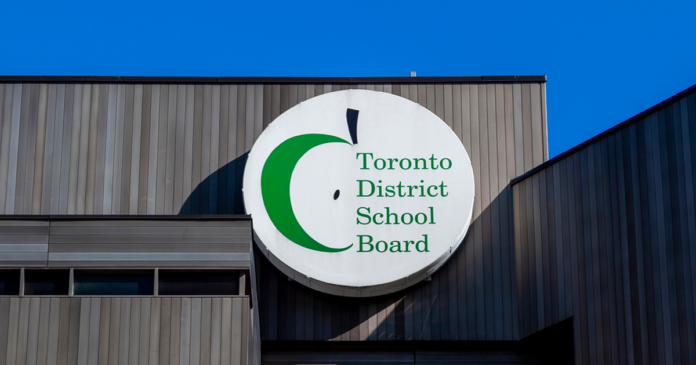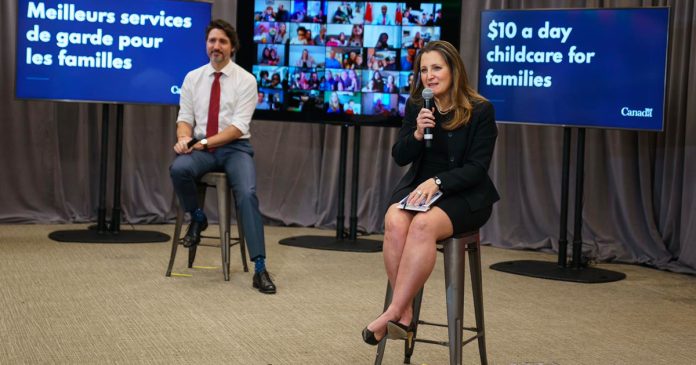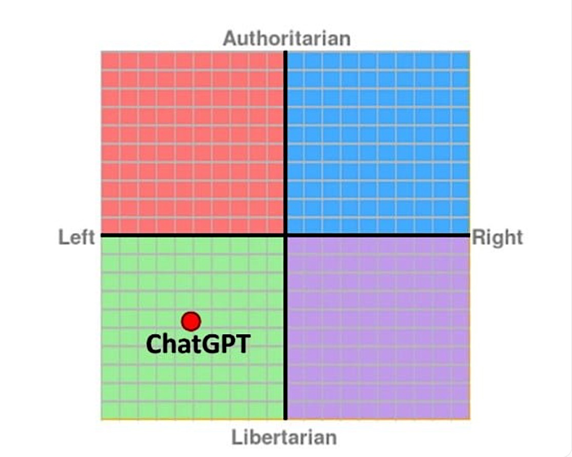Teachers working within the Toronto District School Board (TDSB) say since the pandemic, curriculum has taken a back seat to Diversity and Equity (DEI) training.
“No one talks about the curriculum anymore,” one teacher says. “They (the administrators) talk about equity, human rights, diversity.”
“This is not what I signed up to do for a career,” says the elementary school teacher.
Over the past week, I spoke with a series of teachers who’ve been living silently with pent-up frustration about the crazy woke edicts they are now required to pursue in their classrooms and how the culture has changed so drastically in the past two years under education director Colleen Russell-Rawlins.
The recent tragic suicide of principal Richard Bilkszto appears to have rattled many working for the TDSB – both principals and teachers – prompting some to come forward, courageously to speak about their experiences.
Efforts to obtain a response from Russell-Rawlins through her spokesman Ryan Bird were recently rebuffed.
Bird informed True North that while they appreciate the opportunity, they don’t have any further comments “beyond existing statements” issued late last month.
In one statement, the board announced its own internal review by a preferred contractor of the series of events leading to Bilkszto’s suicide.
In his claim against the TDSB, filed three months before he ended his life, the popular long-time principal alleged he was bullied and harassed by DEI trainer, Kike Ojo-Thompson, hired by the TDSB.
This occurred during two sessions in the spring of 2021. Audio made public of the sessions authenticate his claims.
Russell-Rawlins followed up the board statement the next day by pledging a continual commitment to DEI training.
The three elementary school teachers interviewed this past week asked to remain anonymous given the repercussions that await them if they are even suspected of speaking out of turn, or for looking at a visible minority student or colleague the wrong way.
“They will destroy our careers … we have to be very very careful,” says one teacher.
If principals are the front line dealing with what they describe as a “culture of terror,” the teachers are the foot soldiers who find themselves forced to simply shut up and lead indoctrination sessions that have little to do with teaching the basics.
The first elementary school teacher says during the bimonthly meetings at her school this past year, the focus was consistently on Indigenous education.
She says they learned about Indigenous games, cooking methods and Indigenous story-telling and were expected to replicate these experiences with their students.
They were also subjected to daily events of 45 minutes to one hour that take kids away from the basics. These have included steel pan drumming, East Indian dancing, seminars on Islamophobia and brainstorming sessions on anti-black racism.
There is some spelling, reading and math thrown in for good measure, says the teacher, but the “primary focus is on diversity activities.”
“It’s okay if you’re not doing reading, writing and math but it’s not okay if you’re not doing the diversity stuff,” she says. “You will be labelled a racist or an Islamophobe or anti-Indigenous.”
She said teachers in her school were expected to “bring evidence back” every two weeks – whether a video, audio file, student pictures or a slide show – to the principal or vice-principal. That evidence was subsequently taken to the superintendent, the teacher says.
The teacher says as a consequence, they can’t keep up with the curriculum and this is why test scores are “in decline across the province.”
A second elementary school teacher agrees that the climate in her school has “changed dramatically.”
They are told to cover certain aspects of anti-black oppression and critical race theory without any support or training. There is always the fear they’ll do something wrong, she says.
“Teachers to me are the Lee Harvey Oswalds for the principals,” she said. “We’re the ones who take the bullet for this and the principals don’t back us.”
A third teacher says he was transferred by a vindictive, spiteful principal – Caucasian herself – who repeatedly allowed black students to leave class and who claimed there were “too many old white people” at his school.
The allegations against him were “completely fabricated,” he said.
“It’s awful how teachers are treated.. It’s just so disrespectful,” he said, noting the union doesn’t back them up at all.
The teacher says the amount of focus on DEI training instead of curriculum seems to vary from school to school and superintendent to superintendent.
The second teacher says she focuses on curriculum and gets in trouble for doing so.
“There are too many interruptions in the school year that take away from reading, writing and math,” she said.
“There’s so much fear about being labelled a racist,” she added.
The first teacher says she is in support of “back to basics’ message promoted by education minister Stephen Lecce, but unless the ministry finds a way to “hold school boards accountable [it] won’t happen at all.”
She found Russell-Rawlins’ statement contending that the board intends to continue its DEI work to be “profoundly insulting and a slap in the face.”
All three teachers feel the parents don’t realize what’s going on or turn a blind eye to all of it.
“There is so much pent-up frustration about what’s really going on and how the public doesn’t know where their taxpayer dollars are going and what they are funding,” says the first teacher.
“It’s like the floodgates have finally opened … finally we are seeing in print what my colleagues and I have been very carefully talking about watching, experiencing and whispering about for 2, 3, years.”































